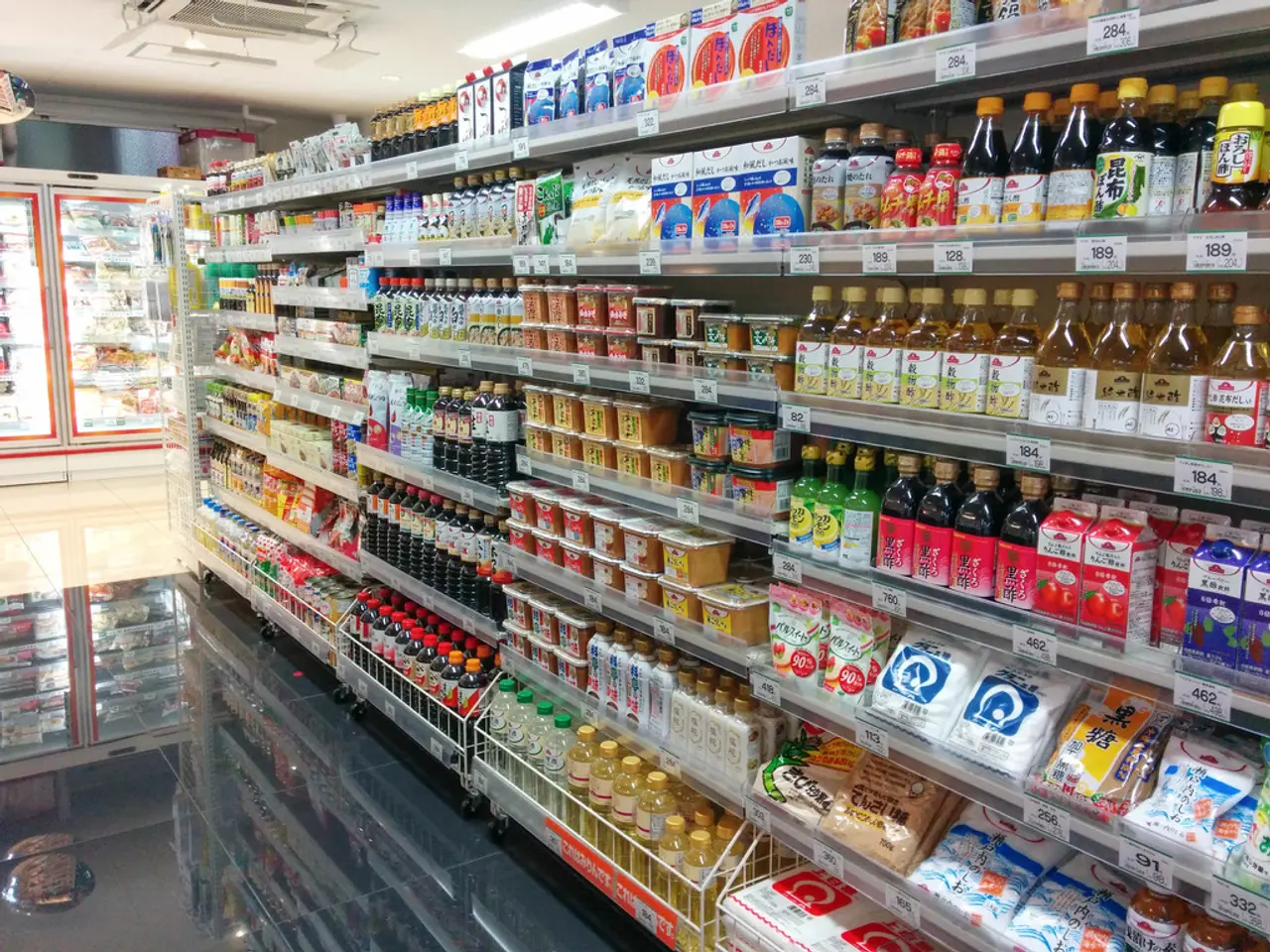The Cold Impact of Weight-Reducing Drugs
In a significant development, Danone has acquired a majority stake in Kate Farms, a move that expands its offerings to include innovative medical nutrition products. This strategic move aligns with Danone's science-based and patient-centered approach to specialized nutrition, enhancing its ability to provide better solutions for people with various health needs.
Kate Farms has recently introduced a high-protein shake for consumers seeking nutrition support on their health and weight loss journeys. The product development process involved input from GLP-1 users and healthcare experts, reflecting the growing impact of GLP-1 medications on consumer preferences.
The food industry is evolving to meet consumer needs amid uncertainty, as shown in FMI's signature research. One of the key drivers of this change is the increasing use of GLP-1 medications, which are significantly reducing grocery and food product sales by suppressing appetite and altering consumption patterns.
GLP-1 medications have had a massive effect on categories like cereal, chocolate, and candies, according to Amanda Oren, VP of industry strategy for grocery at RELEX Solutions. Users of these medications are 65% more likely to buy smaller packs of cold cereal than non-users, and 48.5% more likely to purchase smaller packs of lunchmeats.
The impact of GLP-1 medications does not seem to be slowing down or going away, as stated by Amanda Oren. In fact, surveys and studies in 2025 indicate that about 11.2% of U.S. adults use GLP-1 drugs, with appetite suppression reducing caloric intake by 16% to 39%, translating into an estimated 1.2% to 2.9% overall food sales decline.
Grocers are adapting to the dietary behaviors of GLP-1 users by adjusting ready-meal offerings, stocking more protein-enhanced beverages, and featuring products that help manage GLP-1 side effects. Discretionary categories like snacks, sweets, and junk food are most negatively impacted, as users reduce impulse and hedonic eating.
Retailers and CPG brands face a "tectonic shift," as consumer behavior becomes more deliberate and less impulsive, forcing rethinking of product sizes, packaging, and marketing aimed at consumers with reduced hunger and cravings. Food companies are exploring product offerings emphasizing healthier, lower-calorie foods aligning with GLP-1 users’ dietary shifts, and meal delivery services seek to innovate toward more appealing eating experiences despite appetite suppression.
Store brands continue to siphon market share, according to the latest data from PLMA and Circana. The report also indicates that today's GLP-1 adoption has resulted in grocery volume losses of 1.2% to 2.9%, depending on the category.
Nestlé has launched a line of frozen food called Vital Pursuit, intended for GLP-1 weight loss medication users and others focused on weight management. Another 8.2% of U.S. adults are planning to start GLP-1 prescriptions within the next year, suggesting a longer-term trend.
In summary, GLP-1 drugs are driving a meaningful decline in key grocery categories—particularly indulgent and high-calorie foods—while prompting major adjustments by food brands and retailers to cater to evolving consumer needs and reduced impulsiveness. This shift is likely to continue shaping the grocery landscape in the coming years.
- Danone, with its acquisition of Kate Farms, is now better positioned to delve into the health-and-wellness sector, offering private label nutrition products that cater to weight-management and fitness-and-exercise, aligning with the dietary shifts induced by GLP-1 medications.
- As the food industry adapts to the dietary behaviors of GLP-1 users, retailers are stocking more protein-enhanced beverages and introducing products that manage GLP-1 side effects, while food companies are focusing on healthier, lower-calorie foods.
- Nestle, conscious of the growing GLP-1 user demographic, has launched a line of frozen foods aimed at people on GLP-1 weight loss medication and those focused on weight management, marking an expansion into the fitness-and-exercise and nutrition categories.




